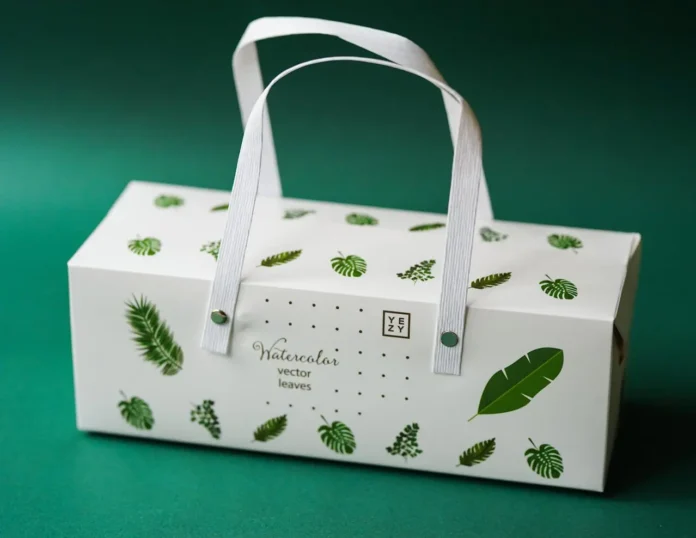.In today’s competitive market, brands must find ways to stand out from the crowd. High-end luxury packaging offers one of the most powerful tools for differentiation, far beyond simply protecting the product. It transforms the customer’s experience, raises the perceived value of the product inside, and reinforces the brand’s identity. In this in-depth blog, we’ll explore how luxury packaging can significantly enhance your brand’s appeal, why it plays a crucial role, and the various materials, designs, and sustainability practices that contribute to success. We’ll also analyze case studies of brands that have mastered the art of luxury packaging and demonstrate how thoughtful design can directly impact your business.
Why Luxury Packaging Matters
In a competitive marketplace, making a memorable first impression proves crucial. The role of luxury packaging becomes critical here as it often represents the first interaction a customer has with your product. This packaging shapes how the customer perceives not only the product but also the brand itself. Consumers who encounter a product with premium luxury packaging tend to associate the product with high quality and value. This association increases their interest, influences their buying decisions, and helps your brand cultivate loyalty.
The First Interaction: Making an Impression
When customers look at your product—whether on a retail shelf or in a package delivered to their home—luxury packaging is the first thing they see. High-end luxury packaging signals immediately that your brand is worth paying attention to. Think back to the last time you purchased a product that came in elegant, beautiful packaging. Chances are, that luxury feel elevated your perception of the product inside, even before you opened it.
For example, a consumer buying a luxury perfume in a glass bottle encased in premium packaging doesn’t just buy a fragrance—they buy an experience. This initial interaction builds anticipation and heightens the overall product experience. Luxury packaging makes a simple transaction feel like an emotional connection between the customer and the brand.
The Unboxing Experience: More Than Just a Purchase
The unboxing experience, particularly in the age of social media, has evolved into a marketing phenomenon. Customers often share their unboxing experiences online, especially when the packaging feels special. As customers unwrap the layers of carefully designed high-end packaging, the tactile pleasure, combined with the visual appeal, enriches the customer journey. Luxury packaging doesn’t just safeguard the product; it transforms the unboxing into a memorable event. When a product arrives in beautiful packaging, it doesn’t just say, “This is a product worth buying.” It declares, “This is a product worth sharing, photographing, and talking about.”
For brands targeting consumers who seek experiences rather than just products, luxury packaging becomes even more important. It allows you to offer more than just a product—it creates an experience that resonates emotionally with your customers, making your brand more memorable and influential.
Building Brand Loyalty Through Packaging
The emotional impact of luxury packaging goes beyond first impressions; it can also foster brand loyalty. When customers feel emotionally connected to the packaging, they’re more likely to associate those positive feelings with your brand and return for future purchases. A memorable unboxing experience, enabled by high-end luxury packaging, transforms one-time buyers into loyal customers. Additionally, luxury packaging can justify higher pricing, giving your brand the ability to command premium prices in the market.
When a customer receives a product in luxury packaging, they feel the brand has invested in the entire experience, not just the product itself. This commitment to detail can lead to repeat purchases and even word-of-mouth recommendations, driving growth as consumers share their positive experiences with others.
The Role of Materials in Luxury Packaging
The materials you select for your luxury packaging play an integral role in shaping how your product is perceived. From the sleek, timeless feel of glass packaging to the tactile sensation of textured cardstock, each material contributes to the overall sensory experience and reflects the brand’s ethos.
Glass: A Timeless Choice
Glass packaging consistently ranks as a popular choice in luxury packaging because it conveys elegance, purity, and longevity. Whether used for perfume bottles, skincare products, or high-end beverages, glass packaging enhances the perception of quality. Its weight and transparency add both tactile and visual elements that elevate the product, making it stand out in the marketplace. For example, a perfume bottle encased in sleek, minimalist glass packaging communicates sophistication and luxury at first glance.
Textured Cardstock: Craftsmanship and Quality
Products that aim to convey craftsmanship and bespoke quality often opt for textured cardstock in their packaging. The tactile sensation customers feel when they run their fingers over textured packaging sends a message of care and attention to detail. Brands commonly use textured cardstock in high-end luxury packaging for fashion items, jewelry, and custom goods. Its texture differentiates the product from competitors and signals that the item inside has been designed with care and precision.
Metallic Foils: Glamour and Shine
For brands that want to add a glamorous touch to their packaging, metallic foils—especially in gold and silver—can make a big impact. These foils catch the eye immediately and elevate the package’s visual appeal. Many luxury chocolate brands, cosmetics, and even tech companies use metallic foils to signal sophistication and exclusivity. This added shine creates an impression of prestige, further enhancing the product’s perceived value.
Leather and Wood: Tradition and Craftsmanship
Luxury packaging often incorporates materials like leather and wood to evoke tradition and craftsmanship. These materials are particularly effective for brands that want to emphasize their heritage. For example, fine spirits presented in wood packaging or leather cases give the consumer the sense that they are receiving something rare, valuable, and rooted in tradition. The use of these materials elevates the act of opening the product into a unique experience, making it feel special and memorable.
Design Elements: Colors, Typography, and Structure
In addition to the materials used, the design elements in luxury packaging—such as color, typography, structural design, and personalization—carry significant weight in how the packaging is perceived.
The Psychology of Color
Color has a powerful influence on consumer emotions. Choosing the right colors for your luxury packaging can significantly shape how your brand is perceived. Muted tones like soft grays, whites, and pastels typically evoke a sense of sophistication and calm, making them a popular choice for high-end cosmetics and skincare products. On the other hand, bold colors like gold, deep purples, and rich reds evoke feelings of opulence, wealth, and exclusivity, which work well for luxury brands.
Typography and Fonts: Elevating the Look
Typography plays a critical role in the overall design of luxury packaging. The font you choose should align with your brand’s identity and resonate with the product’s target audience. For instance, a delicate serif font might work well for a luxury jewelry brand, while a sleek, modern sans-serif font might better suit a tech product. It’s not just about the font itself, but also how the text is spaced, sized, and positioned on the package. Each of these design choices contributes to the packaging’s luxurious feel.
Structural Design: Form and Function
The structural design of luxury packaging is another crucial factor that enhances the customer experience. Many extraordinary packaging designs incorporate multi-layered structures, which create a sense of anticipation as the customer unwraps the product. Compartments, layers, and hidden elements make the unboxing process more engaging and interactive. At the same time, the structural design ensures the product remains well-protected, especially for delicate items like glass packaging or fragile electronics.
Personalization: A Unique Experience
Personalization has become a growing trend in luxury packaging. By offering consumers the ability to customize their packaging—through monograms, custom prints, or personal notes—you can add a layer of exclusivity and emotional connection to your brand. Luxury packaging that feels tailor-made for the customer leaves a lasting impression, helping create deeper customer loyalty.
Sustainability in Luxury Packaging: The New Frontier
In an era of increasing environmental awareness, consumers now expect brands to incorporate sustainability into their packaging practices. Many luxury brands face the challenge of maintaining a premium feel while adopting sustainable methods. However, by embracing eco-friendly materials, brands can strike a balance between luxury and environmental responsibility.
Eco-Friendly Materials
Many brands have begun opting for eco-friendly materials in their luxury packaging. Such as recycled paper, biodegradable plastics, and renewable resources like bamboo packaging. Although sustainability is often linked with simplicity. These materials can still offer the same level of elegance as traditional luxury packaging. For example, bamboo is sustainable, visually appealing, and can be crafted into sleek, modern designs, making it a great choice for eco-conscious luxury packaging.
Communicating Your Commitment to Sustainability
As consumers become more aware of environmental issues, they increasingly prefer to support brands that demonstrate environmental responsibility. It’s not enough to simply use sustainable materials; you must clearly communicate your commitment to sustainability. By highlighting your eco-friendly practices through messaging on your luxury packaging or marketing campaigns, you can attract a wider audience of environmentally conscious consumers.
Case Studies: Mastering Luxury Packaging
Many brands have already succeeded in using luxury packaging to reinforce their brand identity and create unforgettable customer experiences. Let’s look at a few examples.
Apple: Minimalism Meets Luxury
Apple has perfected the art of luxury packaging with its minimalist, sleek, all-white boxes. That reflect the company’s commitment to innovation and design. Apple’s packaging is not just about the product—it turns the unboxing into an experience, as millions of users around the world have shared their experiences online. Apple’s packaging demonstrates how high-end packaging can elevate even tech products and leave a lasting impression.
Tiffany & Co.: The Iconic Blue Box
Tiffany & Co. stands as one of the most iconic examples of luxury packaging. The brand’s signature blue box, tied with a white satin ribbon, evokes instant recognition and symbolizes elegance, exclusivity, and timelessness. Tiffany packaging has become synonymous with luxury, creating emotional anticipation even before the product is revealed.
Godiva Chocolatier: Turning Sweets Into a Luxury Experience
Godiva Chocolatier excels in splendor packaging, transforming its chocolates into premium gifts. By incorporating silk ribbons, gold embossing, and high-quality materials. Godiva enhances the product’s luxury experience, making each box of chocolates feel like a lavish indulgence, perfect for special occasions or gifts.
Conclusion: Elevate Your Brand Through Luxury Packaging
In today’s world, where consumers have limitless choices, investing in high-end luxury packaging can provide a strategic edge. The gorgious packaging offers far more than protection—it creates an emotional connection, builds brand loyalty, and helps justify premium pricing. By understanding the various aspects of magnificencepackaging—from glass packaging and metallic foils to color psychology, sustainability, and personalization. You can craft packaging that elevates your brand and leaves a lasting impression on your customers.
Ostentation packaging isn’t just a fleeting trend; it represents a long-term commitment to delivering the best possible experience. When done right, it ensures your brand not only stands out but remains in the hearts and minds of your consumers for years to come.


